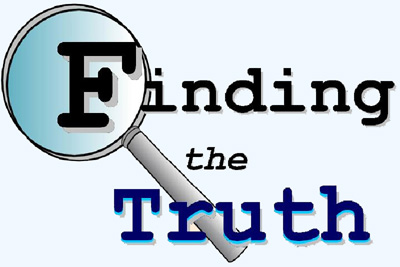How Is The Truth Interpreted?

Do you find it hard to always tell the truth?
Mothers, Children & Law
We know the truth, not only by the reason, but by the heart.
-Blaise Pascal-
More often than not, we don’t want to know the truth. In reality, we want to know the version of the truth that allows us to sleep at night. How true a truth truly is, is always up for debate.
A mother has just lost her adult child to a car accident. After examination from some of the best minds (doctors, firefighters and police) in the city, it appears that it was caused by her falling asleep at the wheel. This is a truth a mother can live with. Her child, overworked, remembered to do everything that day except, most importantly, to get some sleep. When people ask her how her child died, with a clear conscience, she can tell them that she died in a car accident that resulted from her falling asleep at the wheel. The mother doesn’t need to know that her daughter was on the phone with her boyfriend, trying to patch things up from a fight they had the night before. She doesn’t need to know that her daughter was fiddling with the radio, trying to find a station that played music wild enough to keep her awake. All this woman needs to know is that it was an accident that took her daughter’s life. She can reason away sleep deprivation as she herself is prone to it. She can’t, however, deal with her daughter paying more attention to the radio than the road because she always told her daughter not to do that. Most definitely, she can’t handle her daughter wasting the final moments of her life on that creep that she never should’ve started dating in the first place. There are times when the whole truth needs to be only half.
Two teenage brothers are saving to pay to have their mother’s car detailed for her birthday. Once the car has been repainted and all of the dents, scratches and bumps have been taken out, it’ll look as good as new. Their mother will be so proud of them and will, for the first time in a long time, be proud to drive her car. Each week, after buying their own necessities, they put the remainder of their work pay into a jar. When their mother’s birthday rolls around, they present her with a card with a note inside telling her of their plans. Immediately, she drives her car to the auto body place and tells them to have at it. She says she wants to pay in full now and proceeds to lay out the money from the jar. There is a slight problem though. Despite their months of saving, they are $100 short. The mother tells the kids not to worry and pulls out her charge card. The brother who kept the money and counted it out weekly is the more embarrassed of the two. He knows that there was exactly enough money last night. Could he have miscounted? It’s always possible, but, in this case, it’s not the truth. He doesn’t know that his brother took some money last night and that the missing hundred is actually in his brother’s sock draw. Feeling like a big jerk, the thieving brother pulls out his wallet and takes out a wilted ten. He apologizes to his mother and brother for taking the ten dollars and says that he wishes he could give more. He never admits that he took $100. The other brother continues to wonder about the other ninety for weeks. There are times when the whole truth has no right being half.
In theory, the truth should be every detail. Even if these details hurt someone irreparably, you are supposed to spill them. For me, this seems wrong. How can the truth “set you free” if you lose sleep at night over breaking someone’s heart? Is the truth only supposed to be told by people with hearts of steel? What exactly is the truth anyway?
The truth is different for everyone. It is what we believe to be correct and just. It is what we’ve been raised to believe from parents with their own truths. It’s your viewpoint on life. On the rare occasions when groups of people can agree to agree on certain things, that becomes the truth of the group. When enough groups can believe in this truth, it becomes a state law. When still more people can believe in this truth/law, it becomes an amendment. Still, personally or publicly, when it comes down to it, the strength of a truth is based almost entirely on who believes it.
This content reflects the personal opinions of the author. It is accurate and true to the best of the author’s knowledge and should not be substituted for impartial fact or advice in legal, political, or personal matters.
© 2009 Lincy A. Walsh








